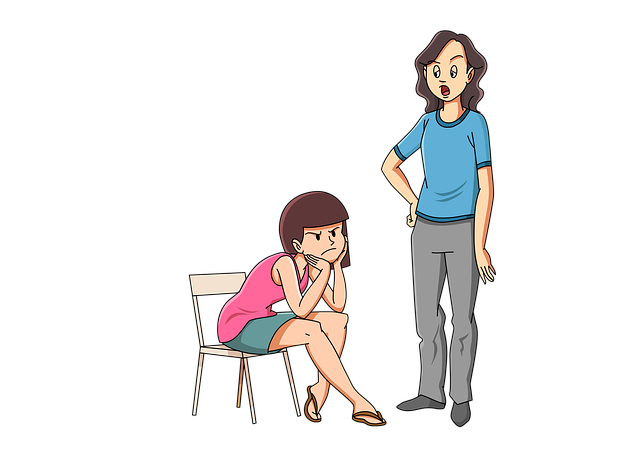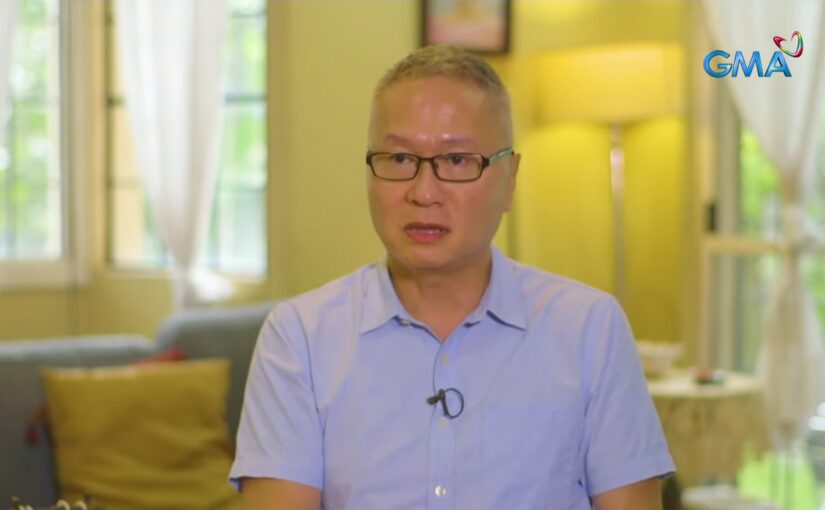Tag: Teen Parenting
Pain vs. Suffering
by Nathan Chua
There’s an old aphorism that goes, “Pain is inevitable, suffering is optional,” credited to Japanese writer, Haruki Murakami.* Have you seen a kid who was disappointed by a parent or primary caretaker who wasn’t as appreciative of a pyramid of blocks it created, and then proceeds to wipe out the masterpiece with one quick stroke of an arm? I do remember myself doing so but can’t remember what my creation was. If we look closely, we as adults sometimes revert to this way of coping with the inevitable hard feelings or the pain we get in situations at home, at work, and at random moments in our days.
I am here borrowing a series of questions you might ask yourself when faced with a challenging moment in these situations. This can help you see if you may be causing more pain on top of what is already an emotionally difficult moment. I borrowed this from a book written by experts in functional analytic psychotherapy.**
- In that situation, can you notice what it is that you do in reaction to it?
- If another person is involved, what do they do in response to your reaction?
- What do you think it is that you do that aggravates or contributes to the problem?
- Did the way you reacted show up in other places or with other people?
- What is immediately rewarding about what you do?
- What is it costing you in the short term?
- What do you foresee will happen if you continue doing what you’re doing in the long run?
- What would happen if you stopped doing what you’re doing now? What would you have to be willing to accept?
- Is there a purpose important enough for you to accept or face that?
In your relationships with your partner or your family:
When people in close relationships fight, there’s usually a reason for such behaviors. Very often life’s stressors provide enough of a catalyst for differences and emotional sensitivities to be highlighted. Couples and parents often believe that their partners or children need to be exactly just like them. There is a tendency to believe that what is evident to one should be evident to the other. There is nothing wrong with these thoughts for that is a typical function of our minds. We compare and find out what should or should not be the same. However, in your attempts to change the other, what results do you notice you get? And if you didn’t do this, maybe you would have to accept that you and your kid or your spouse are different from you. Now is there a purpose here for which you would be willing to accept that?
In your relationships at work
Just like in other areas in your life, change happens at work. Let’s take for example your boss. We all hope that we have only one boss who happens to like us and the way we work, usually for life! Unfortunately, that is not, most of the time, under our control. Many decisions from within the hierarchical structure are handed down from above. So ask yourself the questions posed above. Let’s say you end up consuming hours contemplating how bad things have been since your company had a change of management. You may notice that there are short term costs involved in this behavior, like procrastinating on your work tasks. In the long term, such a habit can only lead up to you losing your job or getting bad marks on your performance. Would you be willing to accept the fact that companies change and at times your boss will frustrate or be different from you? What would be reason enough for you to accept this reality? Is it the family that you love and care about who depend on your job to sustain their needs or even lifestyles? Is it that long wished for vacation that you planned to spend with loved ones?
At random moments
You and I know that driving in a megapolis like Metro Manila can be rather challenging. Anger and frustration are easy to come by when you have to contend with multiple threats to your peaceful drive home. When you yell and scream inside your vehicle while your kids and partner are with you, what do you notice are the payoffs and both short and long term negative consequences? Has it gotten in the way of an otherwise happy ride home? Would you have to accept that at times driving in an overcrowded city can be challenging? Is your drive home important enough of a reason for you to hold your peace?
There you go my friends. Hope these examples will give you a snippet of what you can learn from what the experts have painstakingly worked to provide us with, which is the knowledge that we are not free from life’s pains, but we are free to choose how we respond to them. Will we follow old rules of thumb that have both long and short term costs to what otherwise are things we most cherish about our jobs and relationships? Or will we stop and take a step back and see from a distance what we can do differently to avert the costs and live well in the moment?
*https://www.goodreads.com/quotes/613585-pain-is-inevitable-suffering-is-optional-say-you-re-running-and
**FAP Made Simple by Holman, Kanter, Tsai, Kohlenberg
How to be a guide to your teenager
by Nathan Chua
Generation gap? What happened to my baby? I want the best for her but she seems to not understand! He’s not listening to my words anymore. She seems to spend more time in her room, on her phone than with us parents exactly when there are opportunities to connect and bond. These are just some of the common problems I see from parents who, for the first time, are feeling like they have lost control over their teenage child.
One of my favorite metaphors to share with parents who struggle with their teenagers is that of a mother bird who has a few grown up chicks that are just about ready to fly out on their own. Your teenager wants to take flight. They will have some unsuccessful attempts and this is the time you could be seen by your child either as a teammate or a big obstacle.
The teen years are like the toddler years. They can be really challenging. Remember how much you had to worry about your toddler hurting himself, or losing them in a mall? Your teenager is no longer a child but not yet an adult, just as your toddler is no longer an infant but not yet able to walk without falling badly at times. This can be a painful realization for the parents. If there was separation anxiety for kids, I think this could be the closest thing to it that parents experience.
One of the more frequent complaints I get from parents is that their kids are no longer listening to their admonitions and at times showing no fear of their sterner warnings. In some cases, one parent plays the good cop and the other the bad one. Not only does the conflict happen between the parents and the child, but also between the couple. One resents playing the bad cop and the other resents the other for being the bad cop. It’s quite a common issue for parents with kids, to disagree about how to parent.
But I get it. Parents have all the good intentions to keep their kids from harm and get them to a brighter future. The problem lies in the way they do it. Dr. Darin Cairns has come up with an interesting metaphor on how to help your relationship with your teenager get better. Dr. Cairns asks parents to choose if they wish to act as gatekeepers or guides.
More often, parents perform the role of gatekeepers. They determine for their children what they should or should not do. Of course, there are certainly some things that parents would not want their kids to try, like crossing the street without a care about vehicles coming toward them. Most of the time however, gatekeepers use rules of what to do or not to do for their kids without much of an explanation or giving the child a sense of some autonomy over their actions and choices. Guides, on the other hand, are parents who validate their teens, allow them to make choices, and let them see for themselves the consequences of these choices.
It doesn’t end there though, being a positive guide is also part of this equation. By positive I don’t mean that everything should be happy and joyful. This will give the impression to the child that it is bad to feel sad or anxious or angry or any of the unpleasant emotions. By positive I mean that you should focus on asking your child to do things rather than telling them what not to do. Why? Because through this your child will not feel criticized and will take your guidance as an opportunity to learn new things and give them a sense of agency.
Well, I am getting tired as I write this. Suffice it to say that I completely empathize with parents of teenagers. It is quite the chore but nonetheless it can be rewarding to be a guide and a friend to your teenager rather than a gatekeeper who is constantly on the lookout for what disaster your kid is up to now. Haha!
ACT for Adolescents Certificate of Completion

We always strive to find the best training and approaches available to provide you with the best results possible. Nathaniel Chua recently accomplished a six-week training course with Dr. Russ Harris, a best-selling author and renowned ACT (Acceptance and Commitment Therapy) therapist. Nathan has been working with teens since 2009. This workshop has opened his eyes to the many ways ACT can be highly effective in helping teens, as well as their parents, find more effective ways of relating to one another.
Do you need counseling?
Do you need counseling for depression, anxiety, trauma, relationship (marriage, family) problems, insomnia, anger management problems, infidelity, teen parenting issues, grief processing, addiction, procrastination, work performance, and even weight issues?
We are here to provide you with evidence-based approaches that are backed by reliable and valid scientific research!
We provide both in person and online video counseling for your convenience.
Please text (preferred) or call:
Mobile Number: +63 917 886 5433 (LIFE)
Available also on Viber and WhatsApp!
(The best option is to message this number through Viber or WhatsApp and we will gladly call you back or reply!)
You can also call our booking hotline!
Booking Hotline: +632 8396 6007
The booking hotline is available 24/7!
Email:
Connect with us through Facebook, follow us through Spotify and YouTube.
Our offices are located in Quezon City, Metro Manila, Philippines.
CMS Clinic
2nd Floor Back to the Bible Building
135 West Avenue, Quezon City, Metro Manila, Philippines
and
M Place South Triangle
8004 Mother Ignacia Avenue, Quezon City, Metro Manila, Philippines
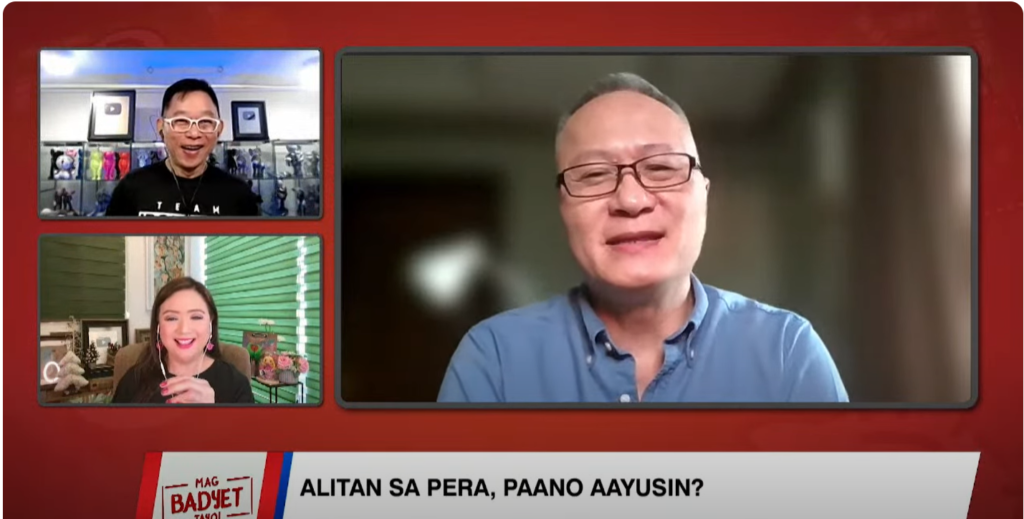
Nathaniel Chua is a member of an international organization called the Association for Contextual Behavioral Science (ACBS). He became chair of the Diversity, Equity, and Inclusion Special Interest Group (DEI-SIG) of ACBS; the first Non-North American to do so.

Nathaniel Chua has a Master’s Degree in Counseling and continues to learn more of the most cutting-edge approaches to working with the human condition.
Below is Nathaniel Chua’s first virtual talk held on November 17, 2023 in front of an international group of therapists from Low or Middle Income Countries (LMIC). He is the first from the Philippines to do this:
What is One Life Only Counseling about?
- You can be assured that your information with be kept completely confidential.
- You will be respected regardless of your religion, gender preference, ethnicity, economic status, and even your personal lifestyle and values. We are LGBTQIA+ friendly!
- Your counselor will not impose their values and beliefs on you.
- We use a scientific model of counseling that has precision, depth, and scope. Below are bullet points to let you understand better what we mean by this:
- By precision we mean that our approach to counseling tells you how these mechanisms of change work. It is not enough to say that a sense of self-awareness is what creates changes in people’s behavior. Our approach tells us how self-awareness works as one step within a set of processes that can lead to lasting change.
- Depth means the approach we use does not conflict with other theories and models of therapy. In fact, many other approaches can be used as forms of treatment towards greater psychological flexibility. Our approach for instance does not conflict with findings in the area of attachment theory, gestalt therapy, psychodynamic therapy to just raise a few examples. It cuts across other levels of analyses.
- Finally, by scope we mean that our approach comes from the discovery of the smallest set of processes that cuts across multiple mental health concerns from anxiety and depression to personality disorders to psychosis, etc. It is a transdiagnostic approach that seeks to understand what many of the symptoms or syndromes come down to, so these processes can be targeted to address many, if not all of the disorders listed in different diagnostic systems.
- We are also probably the only counseling service in the Philippines that follows a certain philosophy of science with certain a priori assumptions about human nature. With this in mind, we offer a holistic consistent approach to life’s challenges that is a-ontological, monistic, and pragmatic.
- Furthermore, ineffective behaviors are addressed by their classes and functions, therefore making our model of therapy parsimonious and much easier to apply to daily living. Most of our clients are empowered to use the skills they learn in therapy to apply to a multitude of challenging situations without having to rush to a therapist to address specific concerns. If you remember Einstein, everything can be explained by one simple equation, E = mc squared! In other words, we do our best to be ACT-Consistent or as some other experts would call it, we practice, ACT Fidelity!
The approach we use is also one that is endorsed by the World Health Organization as an effective psychological tool for coping with any kind of life crises! It can be described as a kind of psychological vaccine that has been found to be effective in improving and promoting mental resilience in the face of many, if not all kinds of life challenges.
Here’s a paraphrase from Dr. Steven C. Hayes in my interview with him on April 5th, 2022:
“Here’s what the World Health Organization, the best public health and scientific group in the world says about this protocol, this extensively tested protocol is helpful for anyone who is stressed, for any reason, in any circumstance.”
Since 2019, we have been very excited to offer this type of a radically different approach to therapy that is not just about relieving symptoms, but also about helping people towards creating lives imbued with meaning and purpose.
Here’s a video about what makes One Life Only Counseling Services different:
You can read the written version of this video through this link: https://www.onelifeonly.net/about/what-makes-one-life-only-counseling-services-different/
Here is a recent interview for an article on Philstar Life featuring Nathaniel Chua and a legal practitioner about marital sexual consent:
https://philstarlife.com/news-and-views/928796-consent-rape-marriage-explainer
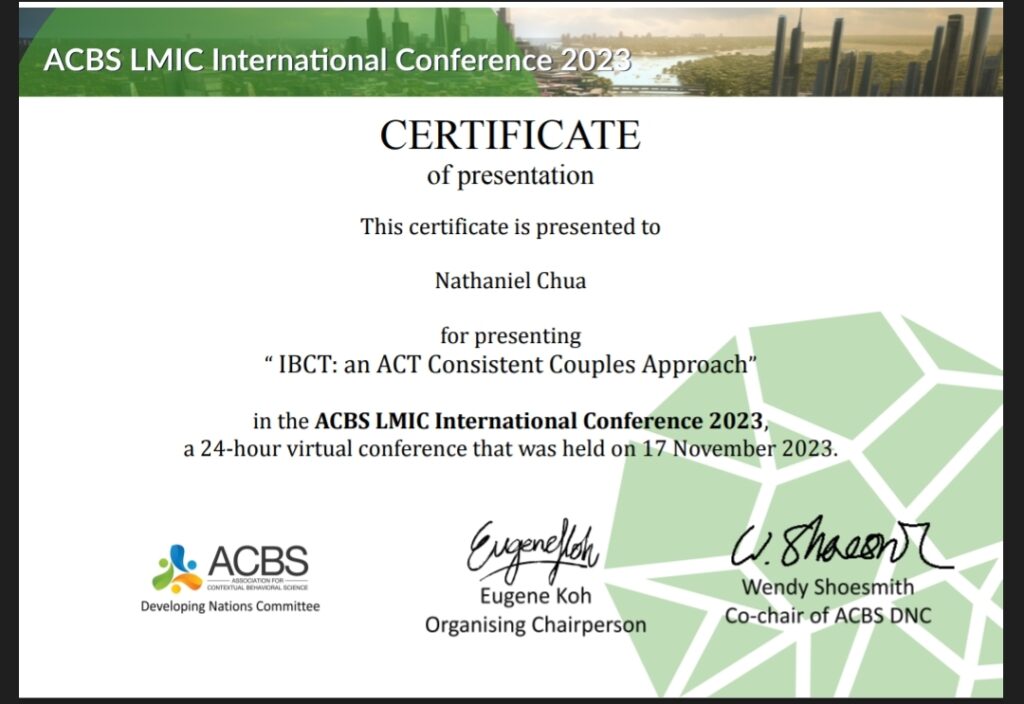

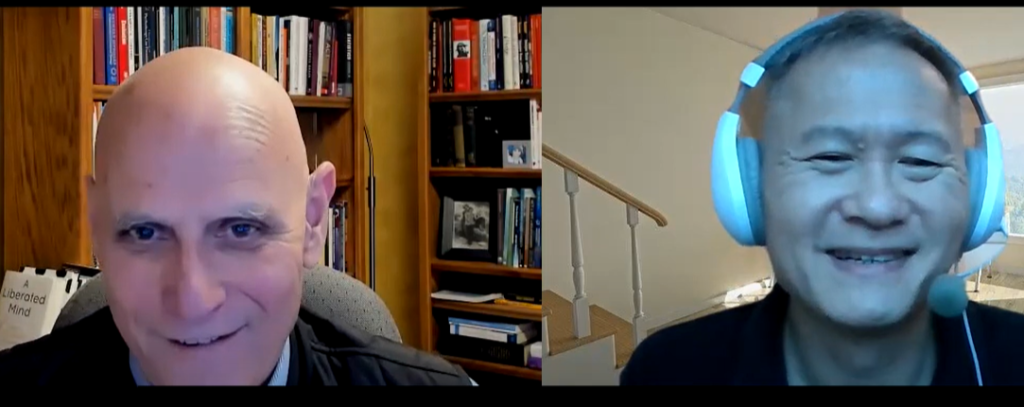
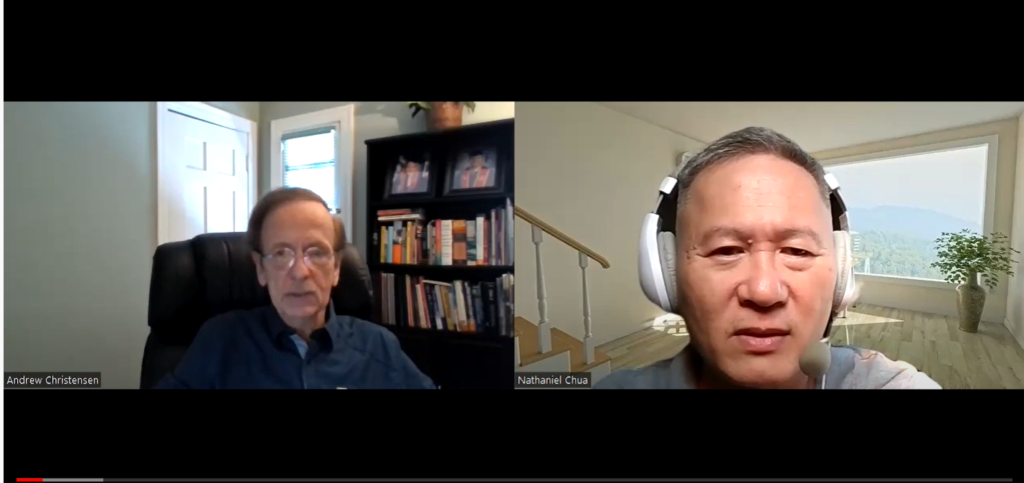
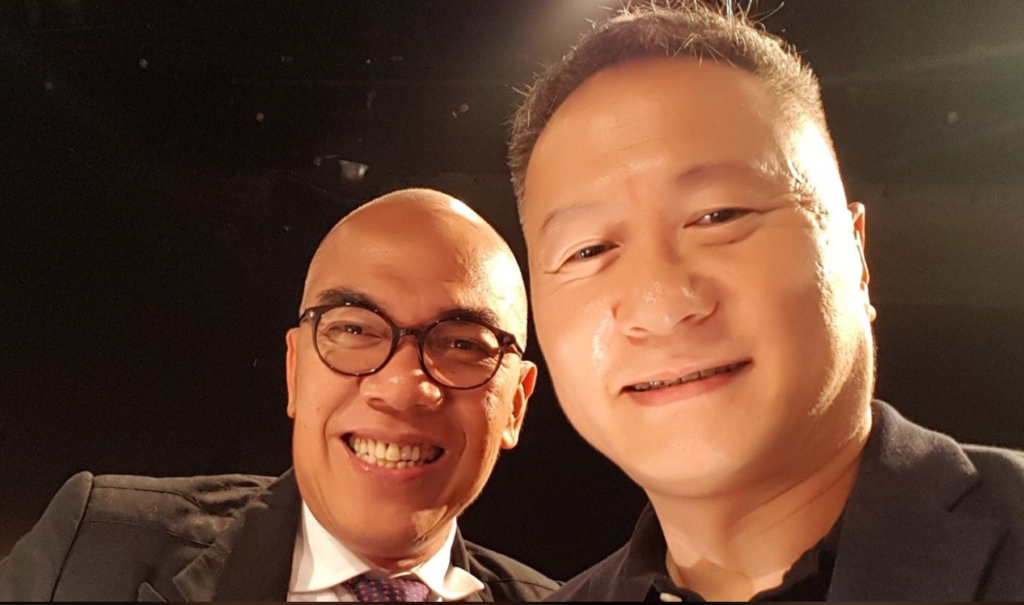

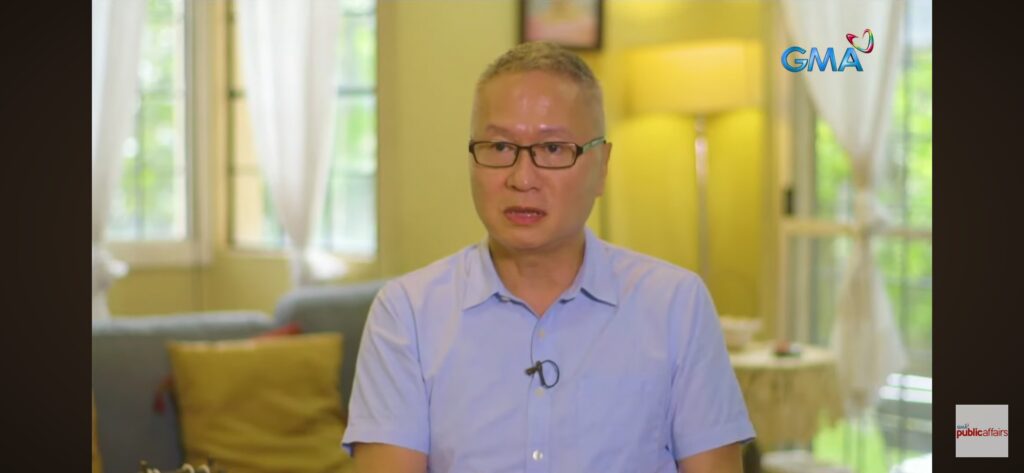
Here a video of Nathan Chua’s appearance on a “Dapat Alam Mo” Episode:
Here’s a solo interview of Nathan Chua with an ACT Matrix Expert and Counselor from the United States, Jacob Martinez:
Interviews with the experts:
Here are two interviews with the two experts that have had a huge impact on my work in recent years. They are with Dr. Steven Hayes and Dr. Andrew Christensen. Here are the videos:
Pursuing the Happy Life
by Nathan Chua
When you raise your head to look ahead as you traverse the busiest streets of Manila, there will undoubtedly be dozens of billboards craning for your attention as you look into the distance and survey the sea of traffic ahead of you. It sort of is a means to break the monotony of tail lights shimmering about several kilometers ahead. Lots of cheery faces showing you how much more you can grab out of life if only you had that new car, home, outfit, hairstyle, and yes, even that new loan! Yeah, that is the good life, the feel good life!
Positivity has become the antidote to much of what we experience in life as trials and misfortunes. We can always just think about positive things and all will be alright as far as our internal mechanisms are concerned.
Just recently heard Dr. Steven Hayes in one of his podcast interviews talk about the futility of this approach to life’s realities. Once again he uses an interesting comparison of this “feel only the good” agenda to just wanting our fingers to feel things that we like. Unfortunately, that is only doable if we totally remove the sense of touch from our fingers. There is no way to teach our fingers to just feel the good ones and not the bad ones. If you feel the soft touch of your pillow at night, you will also feel the roughness of sandpaper as you work on some cleaning project at home. Removing what we dislike can only be done if we remove all the sensations our fingers can feel.
It’s a pretty apt metaphor for not wanting to feel unpleasant emotions. Our minds and our nervous systems come with the ability to experience both sides of the spectrum. If we constantly wish to run away from difficult thoughts and feelings, we will also end up unable to feel pleasant emotions. If we numb ourselves from feeling difficult emotions, we also by default have to remove ourselves from feeling the opposite.
Because of the constant barrage of information we get saying that, the meaningful life ought to make us feel good, we lose touch with what is truly important to us. Maybe that very thing that you have been looking for to find meaning in your life is really contained in some activity that you wish you could do, if only your mind would stop telling you that it’s too hard! Forget about it, you will end up just getting hurt.
Maybe it is in that project you wished you could start because it is where you lose consciousness of time when you engage in doing it. But you are afraid that you will end up being a laughing stock to your friends and family if you did. Maybe it’s in that dating life that you wish you can resume after a painful divorce. But your mind tells you, you better not, because it will hurt even more. Maybe it is taking that step to talk to your child about something you wish he or she can see from your perspective. But your mind tells you, you will just end up spoiling your kid and surrendering some of that power you have over him or her.
All of these yearnings point to what truly matters to us and the existential anxiety we have about how we spend our time as we remain alive and conscious. If it is important for you to have that career, then you will feel anxious pursuing it. If it is important for you to have a good relationship, then you will feel terrified by the idea of meeting new people for romantic reasons. If it is important for you to be loving to your child, then you will feel like you’re walking on eggshells raising one.
As an old ACT saying goes, we care where we hurt and we hurt where we care. Anything that is worth pursuing in life will hurt because we care about them. It won’t always be happy. There is no guarantee unfortunately. The only thing that is sure is that if you pursue a life that matters rather than a life that’s happy, you will then know what it means to live meaningfully. As one 19th century sage put it, “He who has a why to live for can bear almost any how.”


